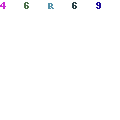LSAMP program encourages research, participation among minority students
Now in its 21st year, the SIUE Louis Stokes Alliance for Minority Participation program has continued to create opportunities for African American and Latino students in the fields of science, math technology or engineering.

SIUE LSAMP students and faculty take a break during the 2015 LSAMP Student Conference hosted by Chicago State in Tinley Park. (Photo courtesy of Dr. Sadegh Khazaeli)
Currently 14 students are enrolled in the fellowship, which encourages minority students to study the sciences. The program which is funded by the National Science foundation through Chicago state,provides a small stipend to encourage minority students to participate in research studies. For science majors, students are required to join an undergraduate research group led by a faculty member. Each student is assigned a faculty mentor who advises LSAMP students on academics and also provides counseling for financial and social purposes. Students are also provided with mentoring services.
“The biggest opportunity that it provides is [encouraging] minority students to work in the sciences with a faculty member to learn how to do genuine scientific research,” said SIUE chemistry professor Myron Jones. “They get to present that research at professional type meetings in a professional environment. They can present a poster or they can present an oral presentation and they get to network with other students who are in similar situations.”
Dr. Jones said many minority students aren’t aware of the program, which began at SIUE in 1994. Often students do not apply for the program until the end of their sophomore years. The program is open to students of African-American or Hispanic heritage.
“A lot of (minority) students don’t realize that opportunities to do undergraduate research is available at all,” Jones said. “I think it’s particularly not obvious to minority students because a lot of times (because) of their family background they’re not aware of that opportunity. So making this available gets the word out.”
To create awareness, LSAMP coordinator Sadegh Khazaeli said that he and Dr. Jones speak to freshman science classes about the program each year. However, due to budget limitations, the program can only support a maximum of 20 students.
Students are also required to attend various symposia each year, including the upcoming Illinois State Academy of Science Annual Meeting April 10-11 at Western Illinois University and the recent LSAMP Student Conference hosted by Chicago State in Tinley Park. In November, LSAMP students attended the Argonne National Laboratory Undergraduate Research Symposium in Lemont .
During the Chicago State Student Conference senior Chante Summers took first place for her presentation on organic chemistry. Junior Ashley Torres, senior Field Walters and graduate Jazmine Sommers also had research presented.
Khazaeli said the program has been extraordinarily successful in areas of student retention and graduation. He said close to 99 percent of students enrolled in the LSAMP program earn their degrees. Khazaeli said that minority enrollment in science, math, engineering and technology is small in relation to the larger student population.
“They get closer interaction with the faculty and their peers academically,” Khazaeli said. “We have seen the GPAs have increased within these programs. The retention in this program is very close to 100 percent, which is unusual retention.”
Filed Under: African Studies • Biological Sciences • Chemistry • Mathematics & Statistics












